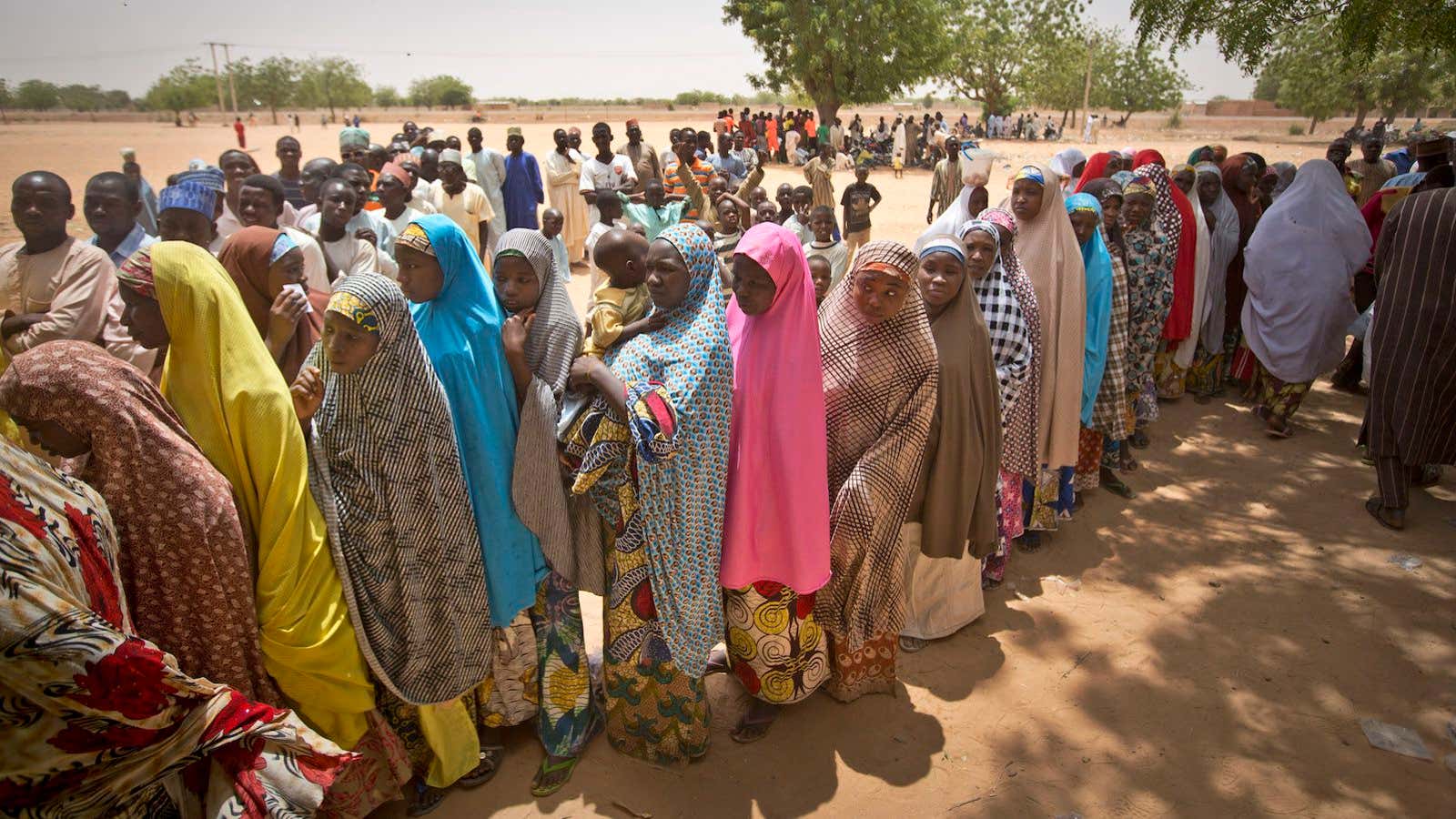Nigerian voters turned out in the millions this weekend to make their choice of president, not put off by threats of violence or hours-long waits at many polling stations, due partly to untested biometric voter card technology which failed even the president.
Nigerians are keen to make their choice between the two front runners—president Goodluck Jonathan and his challenger, retired general Muhammadu Buhari—in what has been described as the closest ever election in Nigeria’s history.
Images of long lines of voters from all over the country spread over social and traditional media, along with reports of significant turnouts—including in Nigeria’s troubled northeast, which has been under siege by Boko Haram insurgents.
As voters flocked to the polls, defying threats from Boko Haram, there were reports of emotional reunions at some polling places between people displaced by the insurgency. Women voters turned out in large numbers in the north, including in Borno State where more than 200 Chibok schoolgirls were kidnapped almost a year ago.
There have been sporadic reports of violence in several areas, including clashes with suspected Boko Haram militants in Borno and Gombe states. There has also been violence in the southeastern states of Rivers and Anambra.
The day didn’t start well, with the website of the Independent National Electoral Commission (INEC) being hacked, though it was soon restored. ”The hack did not disrupt our plans,” said INEC chair Attahiru Jega on national TV.
Many of the problems with voting were related to new electronic biometric voter card readers, which didn’t always work as intended—with a few high-profile failures. President Jonathan and the first lady were both initially rejected at their local voting booth in Bayelsa state. But eventually the problem was fixed.
The new system, designed to prevent voter fraud or rigged ballots, required voters to register and log their biometric data. On polling day, voters had to wait in line for accreditation, and only then could cast their votes. The president’s People’s Democratic Party had vocally opposed the use of the readers without rigorous tests.
The problems, technological and otherwise, have meant INEC has had to extend voting by a day at nearly a third of polling units around the country. It could mean that final results, which had been expected Monday, March 30, may not come in until late that day or the next.
